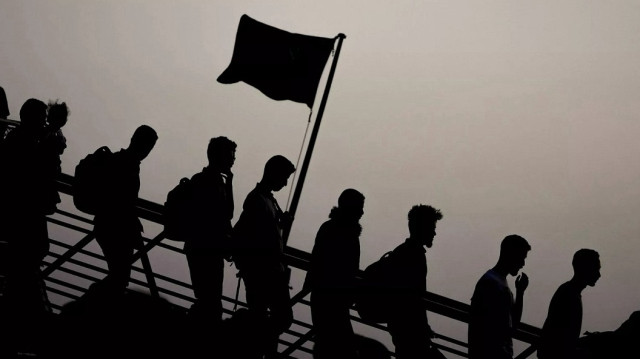
Spokesperson warns of record-low quotas despite growing global displacement
The UN refugee agency on Tuesday projected that 2.5 million refugees will need resettlement in 2026, according to its newly released report, amid shrinking quotas.
While the figure remains substantial, it marks a decline from the 2.9 million estimated for 2025 -- largely due to voluntary returns by Syrian refugees. "We are seeing some people pull out of resettlement processes in favor of plans to go home to rebuild," said UNHCR spokesperson Shabia Mantoo during a press briefing in Geneva.
The highest resettlement needs are anticipated among Afghan (573,400), Syrian (442,400), South Sudanese (258,200), Sudanese (246,800), Rohingya (233,300), and Congolese (179,500) refugees, Mantoo noted. She added that host countries requiring the most resettlement support include Iran, Türkiye, Pakistan, Ethiopia, and Uganda.
Mantoo stressed the importance of resettlement as a life-saving alternative to perilous journeys and said that resettlement offers "a concrete alternative to dangerous journeys, showcases meaningful international solidarity and fosters partnerships with host countries."
Despite rising displacement, UNHCR warned that global resettlement quotas in 2025 are expected to fall to their lowest in two decades. "This dramatic decline in quotas risks reversing the significant progress made in recent years, thanks to collective efforts, while also exposing refugees to more danger," said Mantoo.
She called on resettlement states to bolster their commitments. "We also ask for more predictable and agile resettlement programs and adaptable quota allocations along key refugee routes," she added.
The agency said its 2026 goal of resettling 120,000 refugees remains within reach, urging both large and small quota pledges with faster processing.







